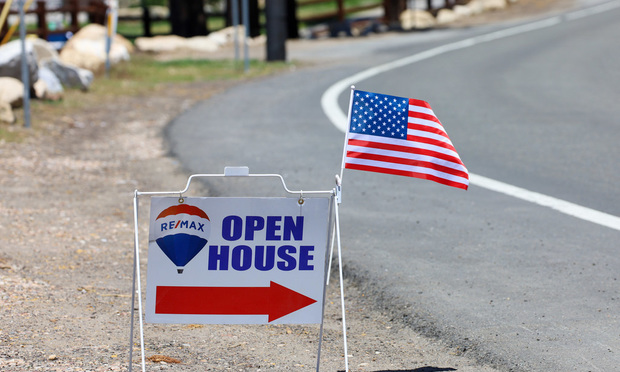Review and Outlook 2009-2010: Insurance company executives
How has the recession changed the way your company conducts business?  Kristian P. Moor: In many important respects, the challenges of the past year have made our businesses stronger. In that time, we have spoken with thousands of our clients and brokers and as result we now are more attuned to their needs than ever before. We've taken many steps–including rebranding as Chartis and announcing one global management team–that have helped unify our businesses globally, which will benefit all of our stakeholders. The past year also has made us more informed as marketers of our company and even more motivated to grow the business. Chartis businesses were stable, profitable and debt free before the recession began, and they still are due to the extraordinary efforts of everyone who works here. Harold Morrison: The recession really has changed the way we conduct business, because it is very influential on our clients. On the commercial side, the reason our sales are down is the level of layoffs of employees among our clients. That's a big rating base for us. We've resolved to work with our clients on their deductibles and limits to make sure they take care of their risk and get through this crisis with minimal impact on their business. Kevin H. Kelley: The slowdown in economic activity affecting other companies is very different for us. We'll be 3 years old this December, so in contrast to them, we're in a building mode. The economic slowdown is affecting us less than companies with a more mature market position. We're hiring people, leasing space in many cities. The benefits of reduced rents are advantageous for us. So we look at economic conditions very differently than might someone from a Travelers or a Chubb. Thomas F. Motamed: I think the short answer is that we're working harder; we're becoming a little more aggressive. We've expanded our lines of business. They now include business services, construction, healthcare, financial services, manufacturing, professional services, retail, real estate, technology and wholesale distribution. With our services, if you look at risk control, we're always looking to expand our capability. And we have a good facility, whether it's for construction, IT, etc. Ultimately, we'll be able to hold down costs for the insurance buyer. We're a fairly large writer of workers' compensation, which is about safety and getting people back to work. We do that as well as anybody out there. Gary Gregg: I wouldn't say that the way we conduct business has changed, but our mindset has changed. It has heightened attention in some areas: the retention of good business–that's critical; paying attention to the balance sheet and growing our capital base; and ensuring that we're managing expenses in accordance with the downward pressure on premiums and revenues. This is a time when lack of solid execution can be costly. We have to maintain enterprise risk management and an adequate balance sheet. Companywide, we've reduced our dependence on any one line of business, on any one distribution system and on any one geographic area. It's positioned us well to deal with shifts in consumers' buying behavior. We weren't into subprime securities or hedge funds–we don't get involved in what we can't understand. We were getting uncomfortable with the stock market in late 2007, so we reduced our exposure to equities pretty early in this cycle. Tom Van Berkel: The recession has not changed any of The Main Street America Group's core values–ownership, relationships, service–or our overall market strategy. It has led to a deeply prolonged soft market, which has caused our ability to grow premium to be quite difficult. Our independent agent customers tell us repeatedly that they value our consistency. A large part of this comes from our being a company that adheres to very disciplined underwriting strategies and pricing methods, making sure we match risk with rate. We refuse to engage in irresponsible underwriting and pricing practices. As a result, it is making our growth more difficult than normal. But we would rather appropriately price business today than have to react to an underpriced book tomorrow. To respond to the need for top line growth, we have placed greater emphasis on assumed reinsurance and program business and have been actively seeking mergers, acquisitions and affiliations with companies that share our Main Street niche and values.
Kristian P. Moor: In many important respects, the challenges of the past year have made our businesses stronger. In that time, we have spoken with thousands of our clients and brokers and as result we now are more attuned to their needs than ever before. We've taken many steps–including rebranding as Chartis and announcing one global management team–that have helped unify our businesses globally, which will benefit all of our stakeholders. The past year also has made us more informed as marketers of our company and even more motivated to grow the business. Chartis businesses were stable, profitable and debt free before the recession began, and they still are due to the extraordinary efforts of everyone who works here. Harold Morrison: The recession really has changed the way we conduct business, because it is very influential on our clients. On the commercial side, the reason our sales are down is the level of layoffs of employees among our clients. That's a big rating base for us. We've resolved to work with our clients on their deductibles and limits to make sure they take care of their risk and get through this crisis with minimal impact on their business. Kevin H. Kelley: The slowdown in economic activity affecting other companies is very different for us. We'll be 3 years old this December, so in contrast to them, we're in a building mode. The economic slowdown is affecting us less than companies with a more mature market position. We're hiring people, leasing space in many cities. The benefits of reduced rents are advantageous for us. So we look at economic conditions very differently than might someone from a Travelers or a Chubb. Thomas F. Motamed: I think the short answer is that we're working harder; we're becoming a little more aggressive. We've expanded our lines of business. They now include business services, construction, healthcare, financial services, manufacturing, professional services, retail, real estate, technology and wholesale distribution. With our services, if you look at risk control, we're always looking to expand our capability. And we have a good facility, whether it's for construction, IT, etc. Ultimately, we'll be able to hold down costs for the insurance buyer. We're a fairly large writer of workers' compensation, which is about safety and getting people back to work. We do that as well as anybody out there. Gary Gregg: I wouldn't say that the way we conduct business has changed, but our mindset has changed. It has heightened attention in some areas: the retention of good business–that's critical; paying attention to the balance sheet and growing our capital base; and ensuring that we're managing expenses in accordance with the downward pressure on premiums and revenues. This is a time when lack of solid execution can be costly. We have to maintain enterprise risk management and an adequate balance sheet. Companywide, we've reduced our dependence on any one line of business, on any one distribution system and on any one geographic area. It's positioned us well to deal with shifts in consumers' buying behavior. We weren't into subprime securities or hedge funds–we don't get involved in what we can't understand. We were getting uncomfortable with the stock market in late 2007, so we reduced our exposure to equities pretty early in this cycle. Tom Van Berkel: The recession has not changed any of The Main Street America Group's core values–ownership, relationships, service–or our overall market strategy. It has led to a deeply prolonged soft market, which has caused our ability to grow premium to be quite difficult. Our independent agent customers tell us repeatedly that they value our consistency. A large part of this comes from our being a company that adheres to very disciplined underwriting strategies and pricing methods, making sure we match risk with rate. We refuse to engage in irresponsible underwriting and pricing practices. As a result, it is making our growth more difficult than normal. But we would rather appropriately price business today than have to react to an underpriced book tomorrow. To respond to the need for top line growth, we have placed greater emphasis on assumed reinsurance and program business and have been actively seeking mergers, acquisitions and affiliations with companies that share our Main Street niche and values.
Want to continue reading?
Become a Free PropertyCasualty360 Digital Reader
Your access to unlimited PropertyCasualty360 content isn’t changing.
Once you are an ALM digital member, you’ll receive:
- Breaking insurance news and analysis, on-site and via our newsletters and custom alerts
- Weekly Insurance Speak podcast featuring exclusive interviews with industry leaders
- Educational webcasts, white papers, and ebooks from industry thought leaders
- Critical converage of the employee benefits and financial advisory markets on our other ALM sites, BenefitsPRO and ThinkAdvisor
Already have an account? Sign In Now
© 2024 ALM Global, LLC, All Rights Reserved. Request academic re-use from www.copyright.com. All other uses, submit a request to [email protected]. For more information visit Asset & Logo Licensing.








